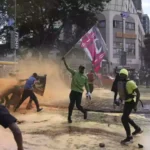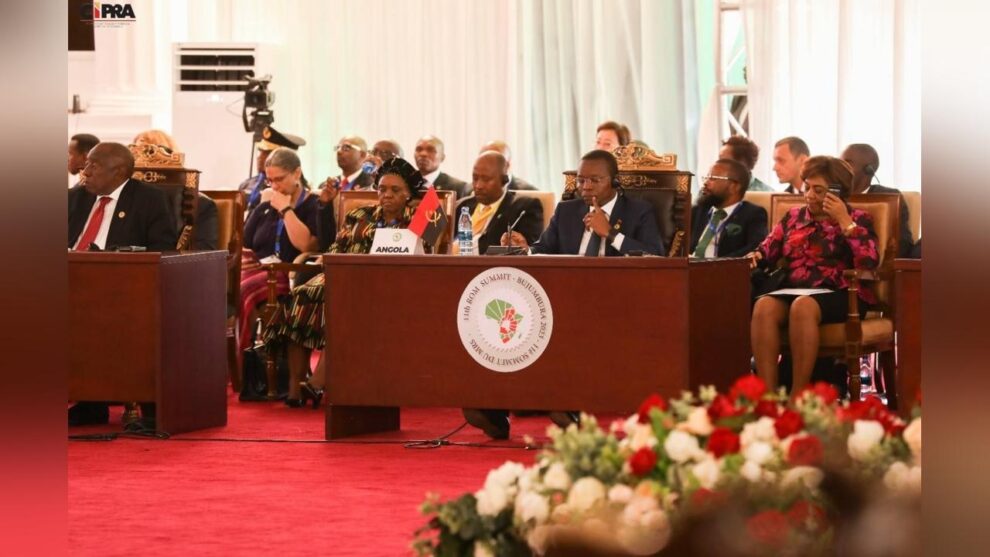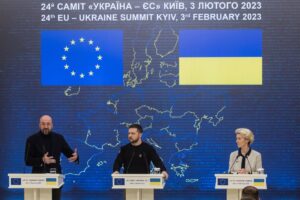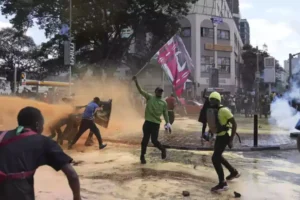Angolan authorities defended Saturday in Bujumbura (Burundi) the revision of the Framework Agreement for Peace, Security and Cooperation for the DRC and Great Lakes Region, signed on 23 February 2013.
The stand was expressed by the Minister of State and Chief of Civil Affairs Office to the President of the Republic, Adão de Almeida, when speaking at the 11th High-Level Summit of Heads of State and Government of the Regional Oversight Mechanism of the Signatory Countries of the Agreement- Framework for Peace, Security and Cooperation for the Democratic Republic of Congo and the Great Lakes Region, which took place in Bujumbura (Burundi).
According to Adão de Almeida, who was speaking on behalf of the Angolan Head of State and Acting President of the International Conference on the Great Lakes Region (ICGLR), the agreement satisfactorily fulfilled the objectives that were at the base of its genesis.
According to Adão de Almeida, the Angolan authorities also consider it imperative to carry out an assessment of its impact, possible shortcomings and challenges in its implementation, in order to guide the definition of the new cooperation framework.
Adão de Almeida expressed his satisfaction at holding the 11th High Level Summit, which brings together the highest Representatives of the Signatory Countries of the Framework Agreement for Peace, Security and Cooperation for the Democratic Republic of Congo and the region and includes matters of great relief for the region.
The minister said although the Great Lakes is a region that generally records an environment of peace, but there is still concern about various cases of political instability and insecurity that affect some of the Member States.
He mentioned, as example, the cases of political tensions between the DRC and Rwanda, the peacebuilding process in the Central African Republic (CAR) and, more recently, the resumption of conflict in the Republic of Sudan.
The Minister of State referred that the degree of latent or recurrent conflict has a devastating and counterproductive effect on the aspirations of states in the region to silence weapons by 2030, in harmony with the principles and objectives enshrined by the African Union (AU).
Adão de Almeida added that such a situation delays economic development and destroys cohesion and social harmony, contributing to the idea that Africa, the cradle of humanity, has its future irremediably compromised.
As a result of its historical past, characterised by a long military conflict that lasted almost three decades, he said, Angola is contributing with its experience for the peaceful resolution of conflicts and for the promotion of an inclusive dialogue between the disputing parties, tending to find alternative ways to violence.
Meanwhile, he added that the Angolan Presidency of the ICGLR is, above all, guided by the incessant search for bridges of dialogue and convergence of positions.
He therefore expressed his satisfaction at the fact that President João Lourenço was named as Champion of Peace and Reconciliation in Africa, at the 16th Extraordinary Session of the AU, held in May 2022, in Malabo, Equatorial Guinea, during which, he was also designated as a Mediator to facilitate dialogue and defuse political-diplomatic tensions between the DRC and Rwanda.
Due to the resumption of armed actions perpetrated by the M23, as well as the existence of other armed groups and negative forces that continue to destabilise the eastern region of the DRC, above all the Democratic Forces for the Liberation of Rwanda (FDLR), RED- TABARA and the Allied Democratic Forces (ADF), the Angolan Statesman, in his capacity as mediator, began an intense process of political consultations between the two parties, at the highest level, highlighting the adoption, in July 2022, of the ICGLR Roadmap on the Pacification Process of the Eastern Region of the DRC.
The so-called Luanda Roadmap or Luanda Process aimed, among other objectives, at normalising political-diplomatic relations between the DRC and Rwanda, including the cessation of hostilities and the immediate withdrawal of positions occupied by the M23, as well as the establishment of a climate of trust between the States of the Region and the creation of ideal conditions for dialogue and political consultation to solve the current security crisis in the East of the DRC and the return of refugees.
For this purpose, an Ad-Hoc Verification Mechanism, led by an Angolan general officer, and supported by a contingent of the Angolan Armed Forces (FAA), would be deployed to guarantee the security of the Cantonment zones of the M23 fighters, as well as of the activities of the Mechanism, in close collaboration with the Regional Force of the East African Community (EAC), with MONUSCO and with the FARDC, as decided by the Peace and Security Council of the AU, held in February 2023, in Addis Ababa (Ethiopia ).
Adão de Almeida reaffirmed the commitment of the Angolan government to continue to work in close coordination with the Nairobi Process to support peace efforts in eastern DRC, being optimistic that this meeting may indicate concrete steps towards its harmonisation, as mandated by the AU Peace and Security Council in February 2023.
Regarding the Republic of Sudan, he said that the Acting President of the ICGLR has been following with deep concern the deterioration of the political transition process, caused by the violent confrontation between the Sudanese Armed Forces (FAS) and the Rapid Support Forces (RSF), initiated in April 2023 in Khartoum and quickly spreading to other parts of the country.
For this reason, he expressed dismay at the growing number of fatalities, as well as the destruction of important infrastructure in the country, and joined the appeals made by other actors, such as the AU, on the need for an immediate cessation of hostilities, the opening of humanitarian corridors for the displaced and the evacuation of foreigners in the country, as well as adopting measures that will establish constitutional normality through dialogue.
Attended the meeting presidents of the DRC Félix Tshisekedi, who is also acting President of the Regional Oversight Mechanism of the Framework Agreement, of Burundi Evariste Ndayishimiye, and Acting President of the East African Community.
The Secretary- General of the United Nations António Guterres, President of the African Union Commission Moussa Faki Mahamat as well as other high continental dignitaries also attended the event.
Source : Allafrica
















